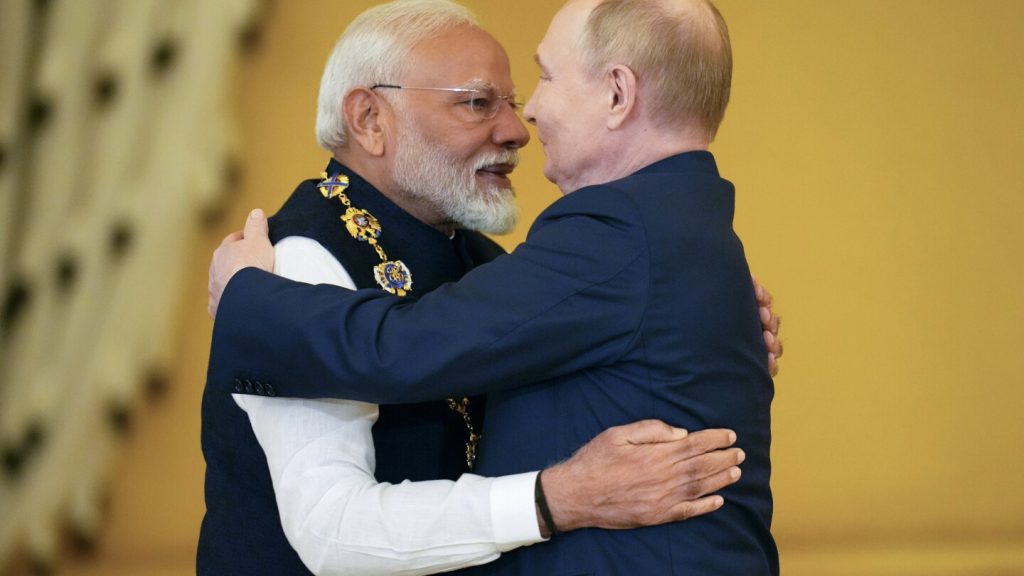Indian Prime Minister Narendra Modi is set to meet with Ukrainian President Volodymyr Zelenskyy in a historic visit to Ukraine, following his recent trip to Moscow to hold talks with Russian President Vladimir Putin. The visit is focused on boosting economic ties and cooperation in defense, science, and technology. Analysts see this visit as an attempt by India to strike a more neutral stance after a perceived tilt towards Russia, given Modi’s Moscow visit, India’s historical relationship with Russia, and New Delhi’s avoidance of criticizing Russia over its invasion of Ukraine.
The timing of Modi’s trip to Ukraine is seen as an effort to control fallout from his visit to Russia, which coincided with NATO leaders gathering in Washington and Russian missile strikes on a hospital in Ukraine. Despite not directly addressing the missile strikes, Modi condemned any attack harming innocent people. The current trip to Ukraine is seen as India’s attempt to balance the situation after being viewed as tilting towards Russia. Indian officials are downplaying any connections with the Moscow trip, emphasizing that these are independent, broad ties with both countries.
India’s ties with Russia date back to the Cold War era, with New Delhi being a key trading partner for Moscow. India has become a significant buyer of Russian oil following Western sanctions on Russia, strengthening their partnership. Modi’s visit to Moscow reinforced their relationship, with a majority of India’s military systems being of Russian origin. Trade between India and Russia has seen significant growth, reaching close to $65 billion in the 2023-24 financial year. On the other hand, bilateral trade between India and Ukraine is lower, but interactions between Modi and Zelenskyy have taken place at global events.
The trip to Ukraine is likely to be viewed positively by the US and other Western countries critical of Modi’s meeting with Putin in July. It presents an opportunity for Modi to engage with Zelenskyy, secure Indian interests, push back against Russian overreach, and appease the West. However, the visit will not change the perception that India maintains a closer relationship with Moscow. Modi is unlikely to use this visit to seek a role as a peacemaker in the conflict, given India’s stance of staying out of resolution efforts and only occasionally speaking against further aggression. The Kremlin is expected to observe Modi’s visit without major concern, as long as there are no highly critical statements against Russia.
In conclusion, Prime Minister Narendra Modi’s visit to Ukraine following his trip to Moscow signifies India’s efforts to balance its relationships with Russia and Ukraine. The visit aims to strengthen economic ties, defense cooperation, and technological partnerships with Ukraine, while also addressing concerns of perceived alignment with Russia. Modi’s interactions with both Ukrainian and Russian leaders reflect India’s strategic non-alignment stance and commitment to maintaining a balanced foreign policy. The trip is expected to be well-received by Western countries critical of India’s relations with Russia, but it is unlikely to significantly affect India’s close ties with Moscow.


